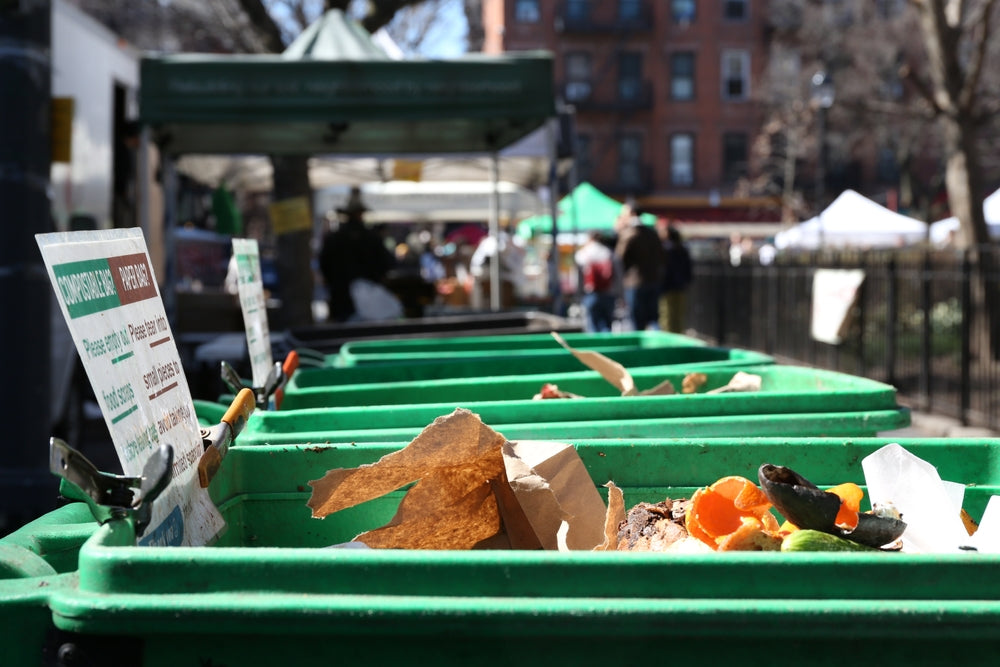
NYC's Mandatory Composting: Transforming Urban Waste
|
Time to read 4 min
|
Time to read 4 min
Big changes are coming to the Big Apple! Starting April 2025, New York City is taking a bold step towards a greener future with the rollout of citywide curbside composting. This groundbreaking initiative makes NYC the largest city in America to implement mandatory composting, transforming how over 8.5 million residents handle their organic waste and food scraps while promoting urban sustainability.
Table of Content
This shift toward mandatory curbside composting aims to align with broader urban sustainability goals. Gone are the days of tossing banana peels and coffee grounds into the regular trash. Now, paper items like napkins and food-soiled paper are also destined for compost bins rather than garbage.
Under this new program, every New York City resident will receive a free brown bin or cart specifically for organic waste, including kitchen scraps from items like paper and yard waste. These bins will be collected weekly alongside regular recycling, making it easier than ever for New Yorkers to participate in the city's urban sustainability efforts.
Here's what residents need to know:
This isn't just another government program – it's a revolution in urban waste management. The City Council has ambitious plans to make this initiative successful:
By making composting as routine as recycling, NYC aims to divert millions of tons of food waste from landfills, significantly reducing greenhouse gas emissions while supporting social and economic development through urban farming.
Did you know that food waste in landfills is a major contributor to climate change? When food scraps decompose without oxygen in landfills, they release methane – a greenhouse gas 25 times more potent than carbon dioxide.
The numbers speak for themselves: food waste accounts for 20 percent of New York City's overall greenhouse gas emissions, making it the third-largest contributor behind buildings and transportation. Reducing emissions by targeting organic waste reflects a commitment to sustainable urbanism.
In 2023, the typical NYC household produced approximately 1,900 pounds of waste, with about 36 percent consisting of food scraps, paper, and other organic materials. That's a lot of potential garden gold going to waste! Brooklyn and other boroughs will see enhanced infrastructure to manage residential waste efficiently.
While the program promises significant environmental benefits, it faces several challenges:
Comprehensive public education campaigns, clear guidelines for waste separation, reliable infrastructure evaluation, and community engagement initiatives aim to overcome these hurdles.
NYC's path to citywide composting hasn't happened overnight. Since 2013, the city has been fine-tuning its mandatory composting approach through pilot programs and gradual expansion, providing the foundation for urban sustainability. Even when faced with setbacks like budget cuts during the COVID-19 pandemic, the city's commitment to sustainability never wavered.
Creating nutrient-rich soil for city parks and urban farming; reducing the city's persistent rat population by eliminating a major food source; saving money on waste export costs; and contributing to Mayor Adams' ambitious "Zero Waste" initiative showcases environmental, social, and economic benefits. Policies driving mandatory composting are fundamental to green urban development.
Beyond collection services, residents can further support sustainable urbanism. Beyond collection services, that's where Reencle comes in – your personal solution for turning kitchen waste into garden gold, supporting sustainable urbanism right in your own home. Imagine having a sleek, odorless composter right in your kitchen that can process up to 90% of your food waste and organic items within 24 hours.
Imagine having a sleek, odorless composter right in your kitchen that can process up to 90% of your food waste within 24 hours. No need to:
Reencle's innovative microorganism technology does all the heavy lifting for you.
Whether you're a New Yorker getting ready for the new curbside composting program or someone who wants to take control of their food waste today, there's never been a better time to start. The future of urban sustainability starts in our kitchens, and every banana peel, coffee ground, and vegetable scrap contributes to a greener tomorrow.
Ready to transform your kitchen scraps into garden gold? Visit reencle.co to learn more about how you can be part of the composting revolution, no matter where you live. Let's grow something amazing together! 🌱
Products you may also consider
